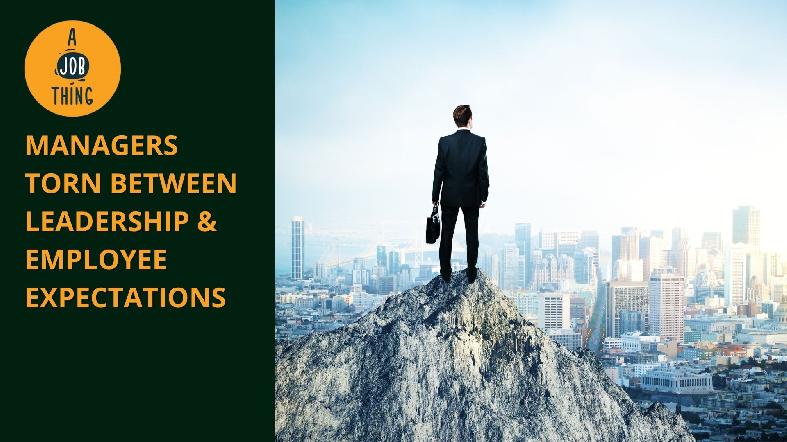
Managers Torn Between Leadership & Employee Expectations
Are You Hiring?
Find candidates in 72 Hours with 5+ million talents in Maukerja Malaysia & Ricebowl using Job Ads.
Hire NowManagers play a critical role in promoting a healthy workplace culture. Most workers see them as the communication bridge between the management and employees, and they also play a huge role in connecting the employees to the company.
According to a recent study by Microsoft, managers worldwide are torn between what their leadership expects of them and what employees expect of them.
Over half of managers surveyed said their leadership is out of touch
The Great Expectations: Making Hybrid Work Work study found that 54% of the managers polled said their leadership is not in touch with employee expectations. Additionally, 74% of managers said they don't have the resources or influence needed to make changes on their team's behalf.
The report highlighted that the source of this issue is clear as business leaders are looking to return to what once was. 50% of respondents stated that their company already orders, or plans to order, full-time in-person work in the next year.
Although, 53% of the respondents considered going hybrid or remote. Due to this, managers feel powerless to propel their team towards change.
What work means to employees
Based on the survey, two respondents' quotes resonated with almost everyone:
-
"Work is only a part of life. It shouldn't be your whole life or the only thing you care about."
-
"I can still be successful at work, but I need to make more balanced decisions to pursue my own interests."
The report showed that most of the respondents are walking the talk.
It is another effect of the past two years, a change in employees' priorities, views, and identities, that pushes them to draw a line between what is important and what is not.
Because of this, employees' "worth it" equation (what employees want from work and what they are willing to give in return) has changed. The power dynamic is moving, and perks such as a corner office and free food are not what people value most anymore.
According to the study, 47% said they are more likely to put personal life and family over work than they were before the pandemic. Additionally, 53% said they are more likely to focus on their wellbeing and health over work than before.
Based on the respondents' regions, those in Latin America (70%) were the most likely to say so, followed by those in Asia/the Pacific islands (57%), North America (52%), Europe (44%) and Australia and New Zealand (48%).
Considering this, employees are taking charge of their newfound priorities. In 2020, 17% of workers left their jobs, which increased a bit to 18% in 2021. The top 5 reasons workers quit were:
-
Work-life balance (24%),
-
Personal wellbeing/mental health (24%),
-
Lack of confidence in senior management/leadership (21%),
-
Risk of getting COVID-19 (21%), and
-
Lack of flexible work hours/location (21%).
"Not receiving promotions or raises I deserved" was number 7 on the list, further highlighting the change in priorities.
Employers must make the workplace worth the journey
As the world moves towards hybrid work, the biggest opportunity for employers is to reimagine the office's role and create clarity on why, when, and how often teams should assemble in person.
Based on the report findings, over one-third of workers on a hybrid work model stated their biggest issue is knowing when and why to come to the workplace. However, only 28% of organisations have set team agreements to clearly define the new norms.
Simultaneously, 43% of remote workers believed they were left out of meetings, yet only 27% of organisations have made new hybrid meeting etiquette to ensure every worker feels included and engaged.
"Making the office work for all employees will take radical intentionality. There's no one-size-fits-all approach: Experiment with 'Team Tuesdays' or in-person office hours between 12 pm and 2 pm, two days a week. Consider quarterly offsites that bring far-flung teammates together regularly. The key is for managers to provide clear guidance to employees as they experiment and learn what works for the team," the report said.
An independent research organisation, Edelman Data x Intelligence, conducted the Work Trend Index survey, covering 31,102 full-time or self-employed workers across 31 markets from 7 January to 16 February 2022. It surveyed at least 1,000 full-time employees in each market and aggregated global results across all responses to provide an average.
Among the Asia Pacific countries involved in the report were: Malaysia, Singapore, Philippines, Indonesia, Taiwan, Thailand, Vietnam, India, Hong Kong, China, South Korea, and Japan.
Source: Microsoft

